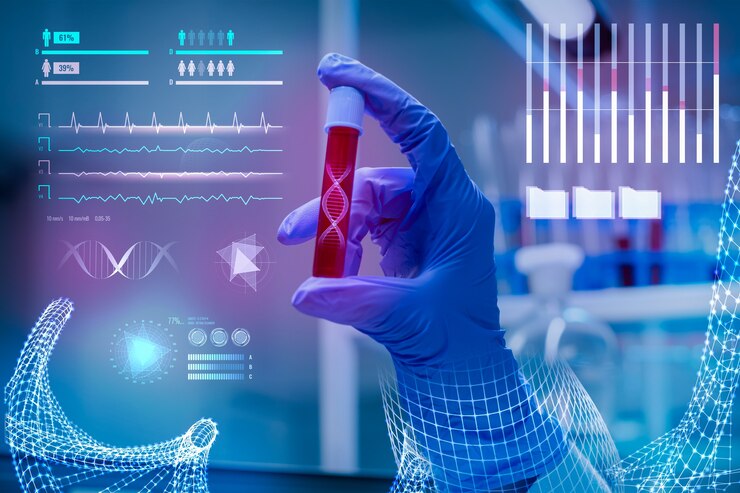Introduction
In the realm of healthcare, the meticulous process of Clinical Data Abstraction plays a pivotal role in shaping medical decisions, enhancing patient outcomes, and driving advancements in healthcare practices. As technology continues to revolutionize various industries, including healthcare, the future of clinical data abstraction stands at the precipice of transformation.
Understanding Clinical Data Abstraction
Clinical data abstraction involves the extraction and interpretation of crucial medical information from patient records, clinical trials, and research studies. This process lays the foundation for evidence-based medicine, enabling healthcare providers to make informed decisions and deliver optimal care to patients.
Importance of Clinical Data Abstraction
Accurate and comprehensive data abstraction is essential for various healthcare initiatives, including quality improvement initiatives, clinical research, and regulatory compliance. It serves as a cornerstone for analyzing healthcare trends, identifying best practices, and driving continuous improvement in healthcare delivery.
Evolution of Clinical Data Abstraction
Over the years, clinical data abstraction has evolved significantly, transitioning from manual processes to more sophisticated technological solutions. While traditional methods relied heavily on manual abstraction by healthcare professionals, advancements in technology have paved the way for automation and digitization of the process.
Challenges in Current Clinical Data Abstraction Methods
Despite its importance, traditional clinical data abstraction methods face several challenges that hinder efficiency and accuracy.
Manual Data Abstraction Limitations
Manual abstraction processes are inherently prone to human errors, leading to inaccuracies and inconsistencies in data interpretation.
Errors in Traditional Data Abstraction
The manual transcription of data from handwritten records or disparate electronic systems increases the risk of transcription errors and data discrepancies.
Time-Consuming Nature of Current Processes
The labor-intensive nature of manual abstraction consumes valuable time and resources, delaying data analysis and decision-making processes.
The Role of Technology in Transforming Clinical Data Abstraction
Advancements in technology have revolutionized clinical data abstraction, offering innovative solutions to overcome traditional challenges.
Automation in Clinical Data Abstraction
Automation technologies, such as natural language processing (NLP) and optical character recognition (OCR), streamline the abstraction process by extracting data from unstructured sources with greater accuracy and efficiency.
AI and Machine Learning Applications
Machine learning algorithms can analyze vast amounts of clinical data to identify patterns, trends, and correlations, facilitating more accurate abstraction and predictive analytics.
Improvements in Accuracy and Efficiency
Technological advancements improve the accuracy and efficiency of data abstraction, reducing the risk of errors and expediting the generation of actionable insights.
Future Trends in Clinical Data Abstraction
Looking ahead, several trends are poised to shape the future landscape of clinical data abstraction, further enhancing its capabilities and impact on healthcare delivery.
Predictive Analytics in Data Abstraction
The integration of predictive analytics enables proactive identification of potential healthcare trends and outcomes, empowering healthcare providers to implement preventive measures and personalized treatment plans.
Integration of Blockchain Technology
Blockchain technology offers secure and transparent data management solutions, ensuring the integrity and confidentiality of patient information throughout the abstraction process.
Advancements in Natural Language Processing
Continued advancements in NLP algorithms enable more sophisticated data extraction from diverse sources, including clinical narratives, radiology reports, and electronic health records (EHRs).
Implications for Healthcare Industry
The evolution of clinical data abstraction carries significant implications for the healthcare industry, with far-reaching benefits for patients, providers, and healthcare organizations.
Enhanced Patient Care
By leveraging advanced abstraction techniques and predictive analytics, healthcare providers can deliver more personalized and proactive care, leading to improved patient outcomes and satisfaction.
Streamlined Healthcare Operations
Automated abstraction processes streamline administrative tasks, reducing the burden on healthcare professionals and enabling them to focus on patient care and clinical decision-making.
Cost Savings and Resource Allocation
Efficiencies gained through technological advancements in data abstraction translate into cost savings for healthcare organizations, allowing for better resource allocation and investment in critical areas of healthcare delivery.
Conclusion
In conclusion, the future of Clinical Data Abstraction is characterized by technological innovation, automation, and predictive analytics. By harnessing the power of technology, healthcare organizations can overcome traditional challenges, drive improvements in patient care, and unlock new opportunities for innovation in healthcare delivery.
FAQs
Q1: How does automation improve the accuracy of clinical data abstraction?
A1: Automation technologies, such as natural language processing (NLP) and machine learning, minimize human errors and inconsistencies in data interpretation, resulting in more accurate abstraction processes.
Q2: What are the benefits of predictive analytics in data abstraction?
A2: Predictive analytics enable healthcare providers to anticipate healthcare trends and outcomes, allowing for proactive interventions, personalized treatment plans, and improved patient outcomes.
Q3: How does blockchain technology enhance data abstraction security?
A3: Blockchain technology provides a secure and transparent platform for managing patient data, ensuring data integrity, confidentiality, and traceability throughout the abstraction process.
Q4: What role does clinical data abstraction play in healthcare quality improvement?
A4: Clinical data abstraction serves as a foundation for healthcare quality improvement initiatives by providing insights into healthcare trends, identifying areas for improvement, and monitoring the effectiveness of interventions.
Q5: How can healthcare organizations leverage advancements in data abstraction for cost savings?
A5: By implementing automated abstraction processes and predictive analytics, healthcare organizations can streamline operations, reduce administrative costs, and optimize resource allocation, resulting in significant cost savings.


